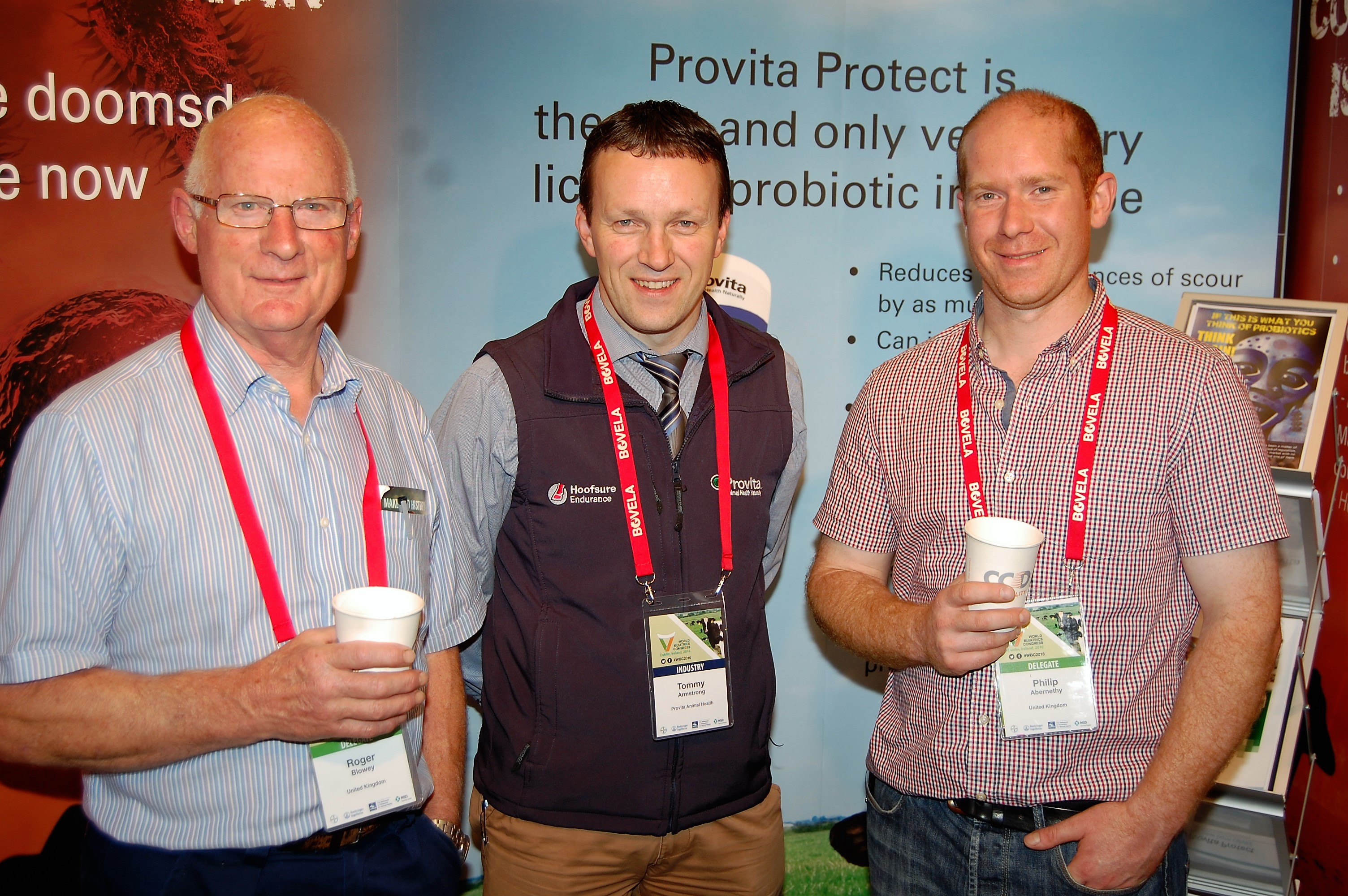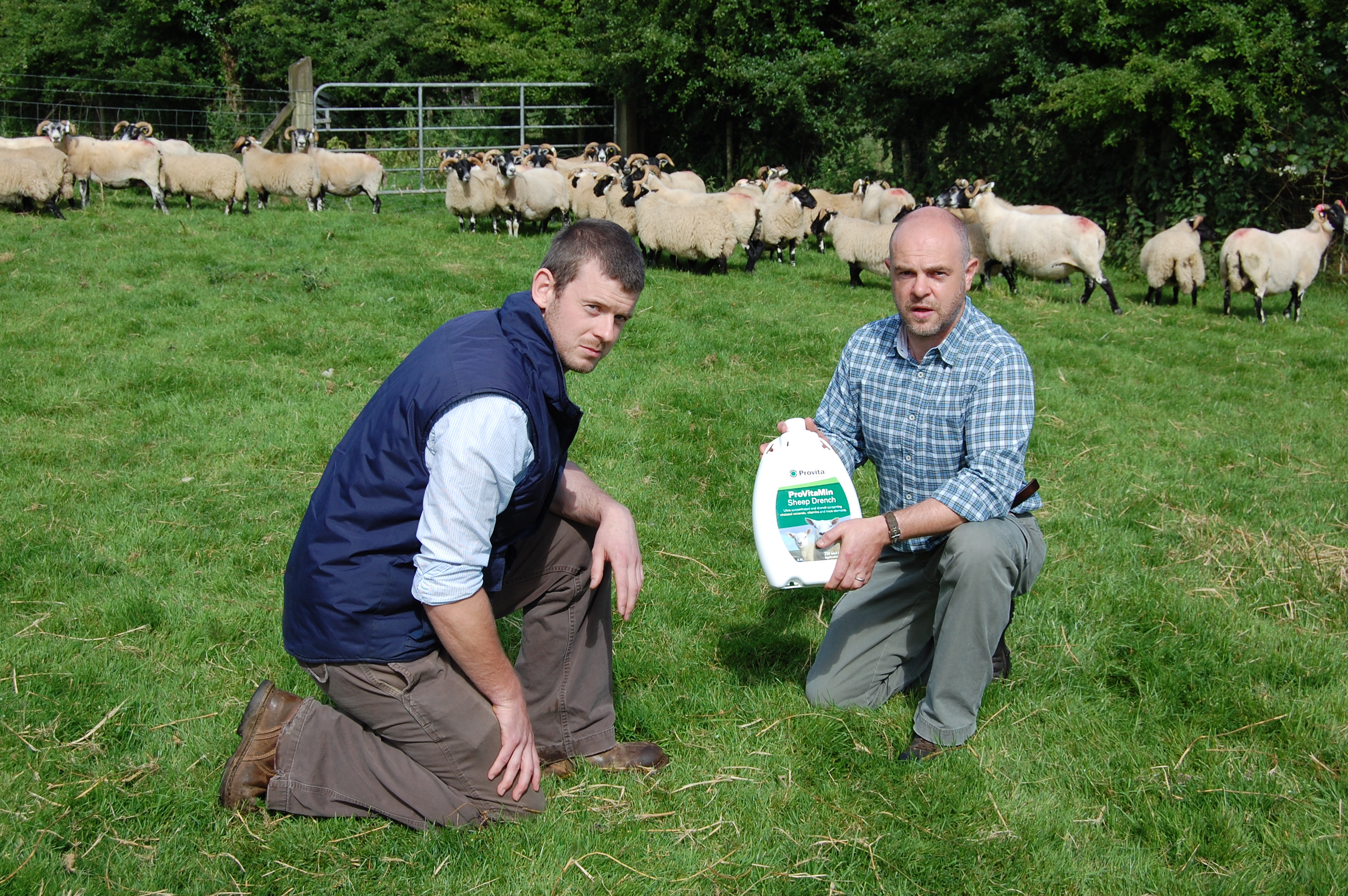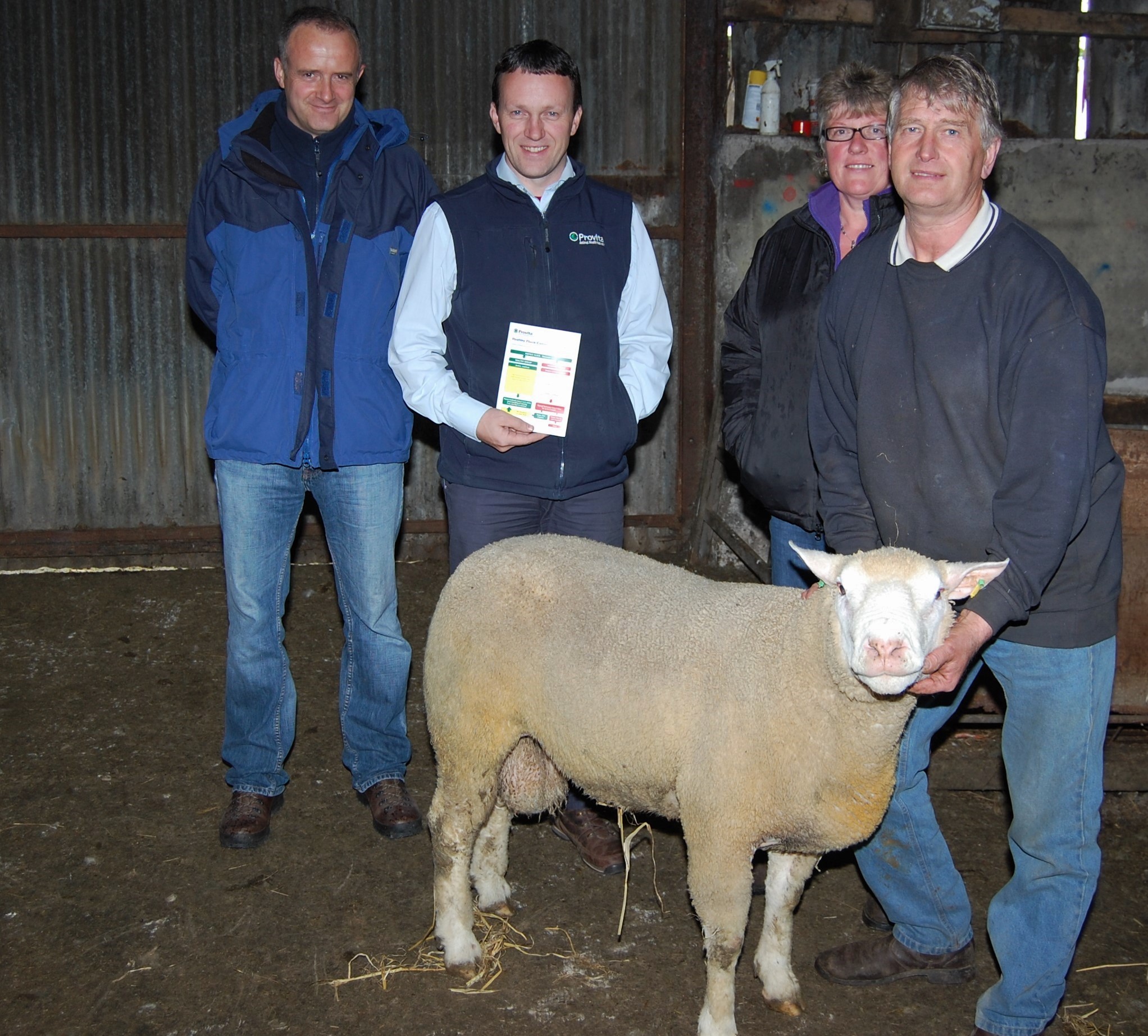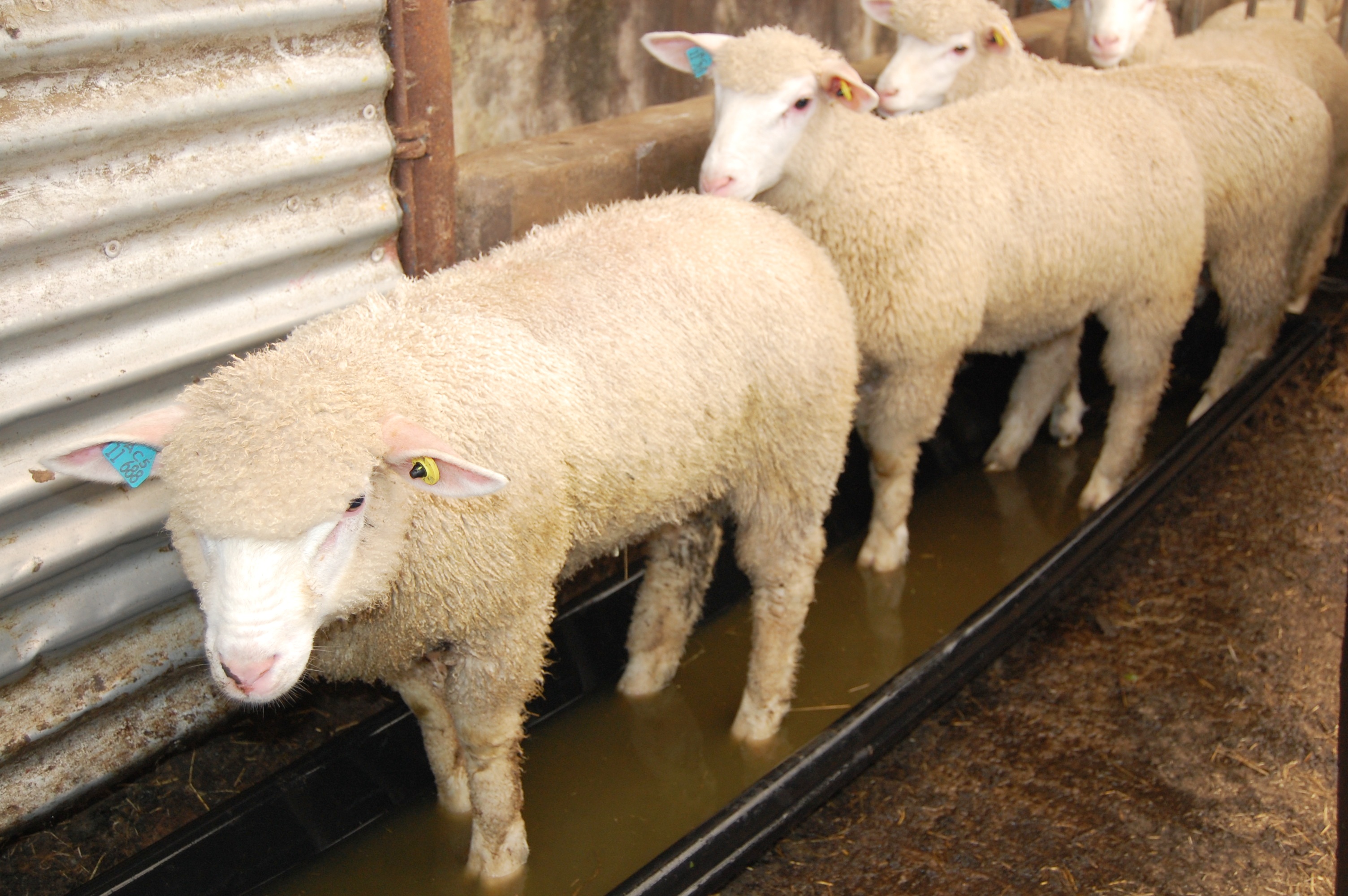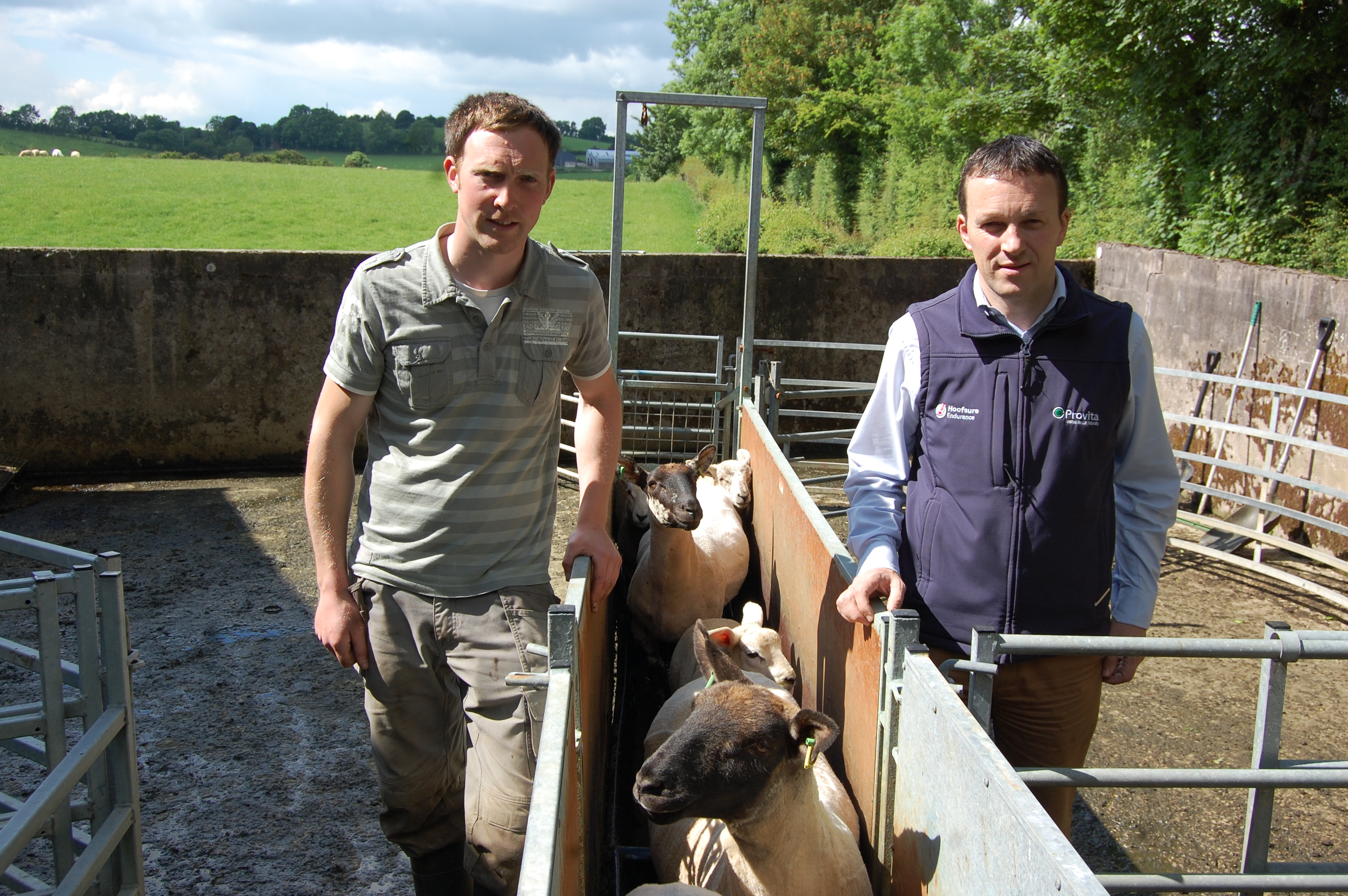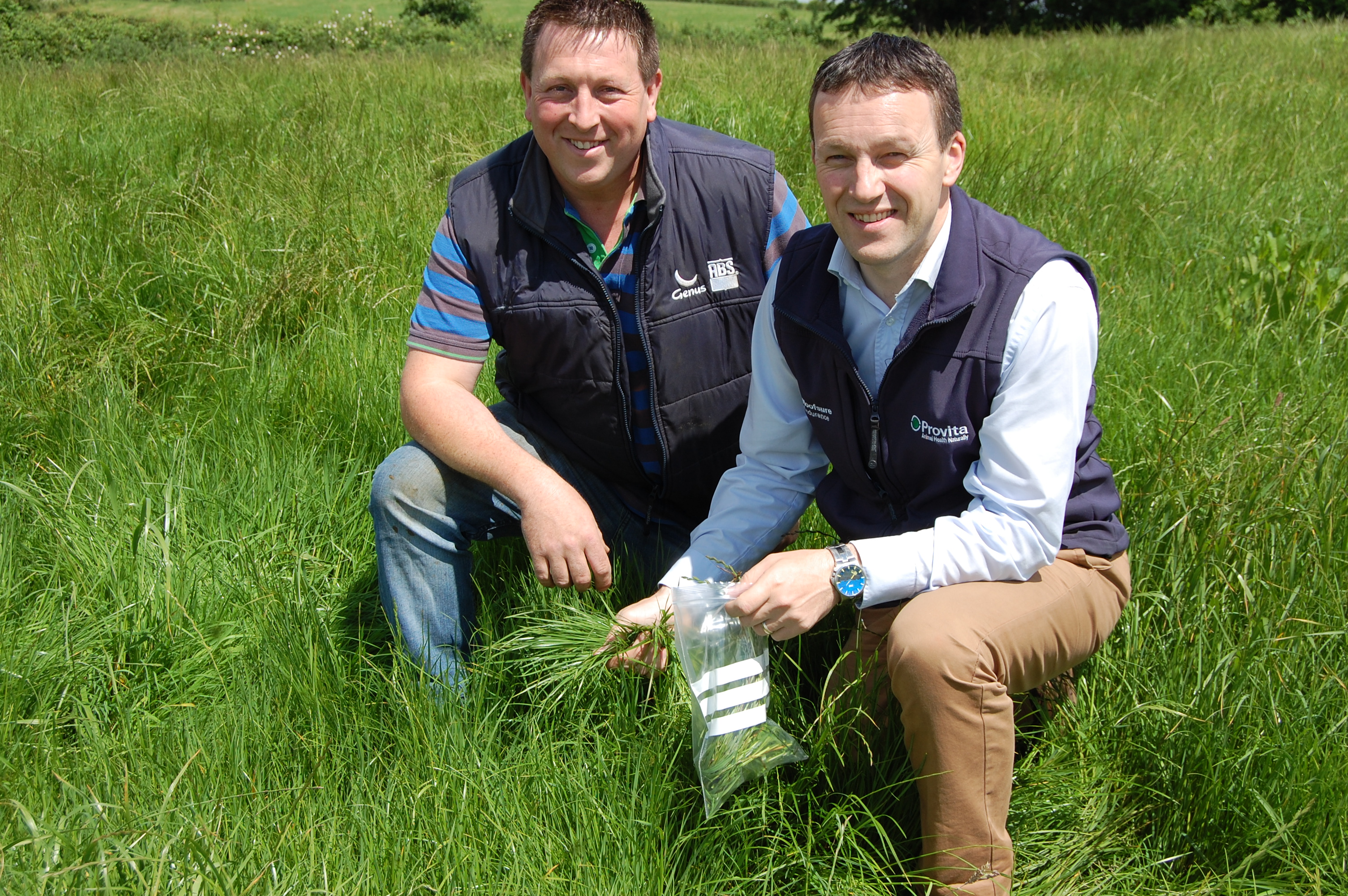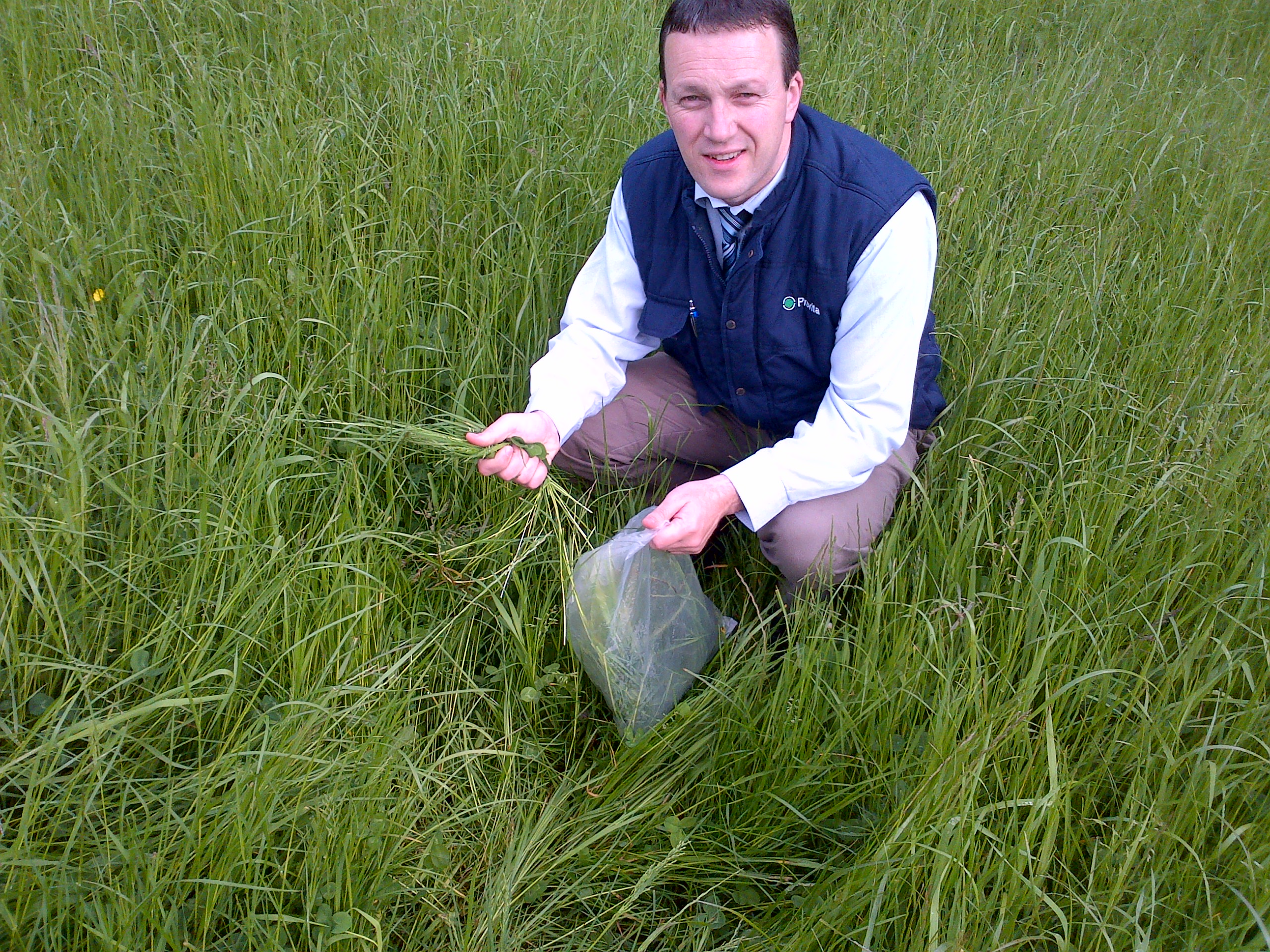Antibiotic resistance is now a global threat and is a huge concern to veterinarians and farmers alike. Consequently one of the main topics discussed at the recent World Buiatrics Congress in Dublin was the need for a collaborative approach amongst veterinarians and farmers in applying responsible use of antibiotics. ‘Because of overuse and misuse, some antibiotics are losing effectiveness against highly resistant bacteria’ (Health Policy Brief, 2015). Indeed bacteria have now become resistant to the last antibiotic type (Mac Kenzie, 2015). This means that farmers are now more than ever before, interested in the benefits of alternatives such as vaccines or proven probiotics.
 Provita Animal Health
Provita Animal Health
ProVitaMin proves its worth on sheep unit
A growing pedigree enterprise has opened up new farm development opportunities for Lanark Blackface breeder Colin McEldowney. The family’s Slaughtneil farm in Co Derry is home to 300 ewes.
“I work in partnership with my father Seán and wife Keara,” Colin explained.
“We run a herd of 25 suckler cows in tandem with the sheep. Where the ewes are concerned, 200 are crossed with Blue Leicester rams to produce Mule lambs. The top 100 constitute the focus of the pedigree operation.
“Over the past number of years I have used semen from a selection of top Scottish rams in order to improve the breeding merit of the flock. This in turn, has provided me with the opportunity to sell stock of my own at official breed sales.
Don’t forego quality when making baled silage
Making baled silage is an increasingly attractive option for many farmers at this time of the year,” according to Provita’s Tommy Armstrong.
“But the same principles that apply to clamp silage, specifically regarding a commitment to maximising forage quality must also be adhered to,” he added.
Armstrong explained that the key to good silage making is that of ensiling grass at the correct growth stage.
“A ‘D Value’ of 70 is the magic number,” he stressed.
Footrot – prevention is better than cure
Scald if left untreated can develop into full blown footrot, according to Provita’s Tommy Armstrong. This was the main message he delivered at the recent sheep lameness workshop hosted by Carrickfergus pedigree Ile de France breeder Edward Adamson.
“Scald will develop if lambs and ewes are put out into fields where longer grasses predominate,” he added.
“Good grazing managment such as taking out fields for round bales or regular topping of paddocks is therefore essential. This practice should be accompanied by a commitment to regular foot bathing.”
Edward Adamson said that ewes with lambs should be foot bathed every two weeks.
NSA Sheep Event 2016
The National Sheep Association are hosting a sheep event, on Wednesday 27th September 2016 at the Three Counties Showground, Malvern, Worcestershire. Provita will be attending the show, and will be located at stand 82. Call and visit our stand for more information on our show offers including: Buy One 20L Hoofsure Endurance get a 5′ … Read more
World Buiatrics Congress 2016
The World Buiatrics Congress brings together experts in cattle health and production systems. This year from July 3rd to July 8th the congress will be held in the Convention Centre, Dublin, Ireland. Come and meet the Provita team at stand number B8. For more information on the congress follow the link: http://www.wbc2016.com/
Provita to host series of sheep lameness talks
Provita has confirmed that it is to host a series of sheep lameness talks over the coming weeks. Two venues and dates have been confirmed. The first will take place in Markethill Sale Yard on Wednesday June 29th, commencing at 6.00pm. The address is Markethill Sale Yard, 12 Cladymilltown Road, Armagh, BT60 1RS. The following day, Thursday June 30th, two events will be hosted by Carrickfergus flockowner Edward Adamson. The address for this event is 6 Fort Road, Killroot, Carrickfergus, Co Aantrim, BT38 9BS. The planned starting times are 1.00pm and 6.00pm. Other dates and venues will be confirmed shortly.
Lameness problems on the increase in sheep flocks
The recent boost in grass growth rates has led to increased lameness problems within sheep flocks,” according to Provita’s Tommy Armstrong.
“The problem is caused by taller stands of grass irritating the skin between the claws,” he added.
“If left unchecked, this can lead to the development of foot rot. Both ewes and lambs are equally predisposed to these problems at this time of the year. And, of course, prevention is better than cure.”
In order to make this sentiment a reality, Armstrong is encouraging flockowners to foot bath their sheep on a regular basis.
Second cut silage swards are heading fast
Second cut silage harvesting got underway this week with farmers and contractors reporting that grass swards have headed faster than anticipated.
“We started harvesting our own second cut a few days ago,” confirmed Gilford-based milk producer and grass contractor Mark Spence.
“The recent spell of hot weather, in tandem, with the rain of recent days has really boosted grass growth rates.
“On Wednesday of this we harvested 10 acres that had been cut the first time at the beginning of May. The field in question received the equivalent of 1¾ bags of 24: 0: 6 as soon as the first cut had been taken.
“I was truly surprised at how well it had grown on over the past number of weeks. The grass was cut with a mower conditioner, allowed to wilt for 24 hours and then picked up with a John Deere self- propelled harvester.
Don’t ‘over cook’ mown grass
The current hot spell is providing farmers and contractors with an excellent opportunity to make first cut silage of the highest quality, according to Provita’s Tommy Armstrong.
“Most swards are now at the right growth stage for cutting. Sugars are high and with dry matters also high grass nitrogen levels are not a problem,” he added.
“All of this adds up to the perfect scenario, from a silage making perspective, with one possible exception.
